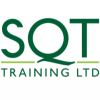Event Organizer SQT Training Ltd
Contact Name Karen O
Contact Number 353-61-339040
Contact Email koshea@sqt.ie
Event Category Training Course
Event State/City Dublin
Event Country Ireland
Cost of Attendance €395
Event/Registration URL http://www.sqt.ie/CourseDetail.aspx?ID=608&Course=BRC+Global+Food+Safety+Standards
Event State/City Dublin
Event Country Ireland
Cost of Attendance €395
Event/Registration URL http://www.sqt.ie/CourseDetail.aspx?ID=608&Course=BRC+Global+Food+Safety+Standards
Event Description
Background
In 1998 the British Retail Consortium (BRC) developed and introduced the BRC technical standard and protocol for companies supplying retailer branded products i.e.,
- BRC Global Standard for Food Safety. This standard is now at Issue 6
- BRC/IOP Global Standard for Packaging & Packaging Materials. This standard is now at Issue 4
- BRC Global Standard for Storage and Distribution. This standard is now at Issue 2, and
- BRC Global Standard for Consumer Products. This standard is now at Issue 3.
The number of BRC certified sites is a testament to the increased international popularity of the BRC standards. Currently there are almost 19,000 certified sites internationally and hundreds in Ireland. Achieving BRC Certification against the relevant BRC standard is an essential component of any food business’s strategy for business continuity.
Regardless of which end of the food supply chain a business operates, due diligence is one of the most essential elements of business continuity. Achieving BRC Certification against the relevant BRC standard not only allows companies demonstrate due diligence, it also opens business opportunities with the most powerful sector in the supply chain, the retailer. The first step to achieving certification is to learn and understand your relevant standard.
BRC Food Safety Standard Issue 6 represents the most significant change to the standard to date. Issue 6, came into effect in January 2012. The standard has been written with a “back to basics philosophy” with a distinct focus on Hazard Control.
The consultation process for Issue 6 identified a number of opportunities for further improvement particularly with regards to the way audits are conducted including:
- A better balance of auditing time between factory environment and assessment of documented Food Safety Management Systems.
- Greater emphasis on GMP
The most significant aspiration of Issue 6 is for food business operators to move towards the unannounced audit options. The unannounced scheme within Issue 5 was not well received because the benefits were not seen to outweigh the practical difficulties of having the entire audit conducted unannounced. Issue 6 has developed two options for unannounced audits both of which will be voluntary. One of these, Option 2 is the split option with day one on the factory floor looking at GMP issues and day 2 assessing the FSMS.
Other areas of interest are the new colour coding of the standard, the new enrolment option and the new guidelines on defining the production risk zones.
Learning Outcomes
On successful completion of this training course, delegates should be able to:
- Understand the development of the BRC Global Standards
- Be familiar with the risk requirements of all four standards in particular BRC Food Safety Standard Issue 6
- Understand the requirements of the subsections of the standards
- Understand the colour coding of the BRC Food Safety Standard
- Understand the new auditing options
- Undertake Production Risk Zoning Categorisation
- Understand the non-conformance categories and the BRC scoring method
- Understand the third party BRC Certification process
- General management who wish to acquire a broad knowledge of the BRC requirements
- Quality Assurance / Technical and Production Personnel who have specific responsibilities for BRC Certification as part of a risk management team
- Engineering/Maintenance Personnel
- HACCP Team Members
- Course Introduction
- Define Objectives
- Overview of BRC Global Standards:
- BRC Global Standard for Food Safety – Issue 6
- BRC/IOP Global Standard for Packaging & Packaging Materials – Issue 4
- BRC Global Standard for Storage and Distribution – Issue 2, and
- BRC Global Standard for Consumer Products – Issue 3.
- Global Food Safety Standard – Issue 6:
- Increased focus on GMP - Unannounced Audit Options
- Changes to Seven Sections
2) Food Safety Plan / Hazard & Risk Management
3) Food Safety & Quality Management System
4) Site Standard
5) Product Control
6) Process Control
7) Personnel
- Production Zone Decision Tree
- The Audit Protocol
- Certification Process
- Non-conformance categorisation
- Audit Scoring & Approval Process
- Course Review / Evaluation
Industrial Management Systems
Testimonials
Click Here
Course Times
9.00am - 5.00pm
Public Course Cost
€395 (includes course documentation, lunch and refreshments)
In-House Courses
For In-House courses, the tutor will contact you in advance to discuss the course programme in more detail in order to tailor it specifically for your organisation.
Course Manual
Delegates will receive a very comprehensive course manual.










